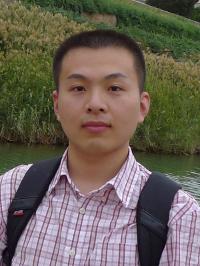Interview with Xiangcheng Chen
 Xiangcheng Chen was born in Chaohu, China in 1989. His four-year bachelor study in the University of Science and Technology of China (USTC) nurtured his academic interests on particle and nuclear physics. Xiangcheng specialized in high-energy physics, successfully defending his bachelor’s thesis in 2010.
Xiangcheng Chen was born in Chaohu, China in 1989. His four-year bachelor study in the University of Science and Technology of China (USTC) nurtured his academic interests on particle and nuclear physics. Xiangcheng specialized in high-energy physics, successfully defending his bachelor’s thesis in 2010.
Thereafter, he was enrolled in the University of Chinese Academy of Sciences (UCAS) as a master student, while he was working on the nuclear mass and lifetime spectroscopy at the Institute of Modern Physics (IMP) in Lanzhou. Being the center for heavy ion research in China, IMP provided him a perfect environment to develop his interests on mass and lifetime measurements of exotic nuclides in storage rings.
Xiangcheng joined oPAC in January 2013. As an oPAC fellow at GSI, he worked on the design and development of a position-resolving cavity as a Schottky noise detector for the Collector Ring (CR) at FAIR. He defended his doctoral thesis at Heidelberg University in November 2015.
What did attract you to the oPAC network? Has it fulfilled your expectations?
An opportunity to study abroad, to experience foreign culture, to meet different people, and to see a bigger world. It surely fulfilled my expectations, and what's more, it has already exceeded them.
Why did you choose to go to GSI?
Before I came to GSI, the institute I worked at is a heavy-ion research facility in China. Since GSI is the flagship in this field, going to GSI is naturally the first idea crossing my mind at that time. Then I just went for it by sending out my application.
Can you explain in a few words what your project was about and what have you achieved?
It's about detecting at which revolution orbit an ion is when it is circulating in a storage ring.
I started with a design concept which utilizes a cavity-based Schottky resonator with transverse sensitivity, then optimized its geometry by analytic and numerical means. Afterwards, I have constructed prototypes for the bench top measurements. Of course the results have justified the original design concept.
What has oPAC provided you professionally?
A variety skills of language, presentation, communication, critical thinking, independent working, and so on.
What are your professional plans now that oPAC has finished?
I am already back to my former institute in China. They offered me a position of research associate. My plans now would be to explore a new research field of Schottky spectroscopy in isochronous mode with a heavy-ion storage ring.
What will be your most cherished memory from oPAC?
Every moment when I hung out with the wonderful fellows!
And the one you’d rather forget?
That our former project manager Rita has left the network before it ends. (We still like you, Ricardo :-) )